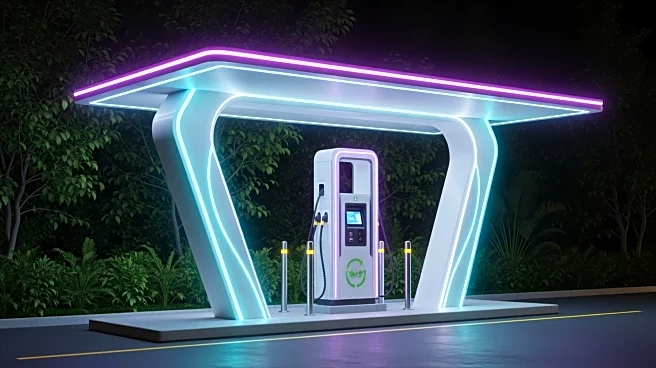What's Happening?
Polestar has reported a significant increase in its electric vehicle sales for the third quarter of 2025, with retail sales reaching 14,192 cars, marking a 13% increase compared to the same period in 2024.
Year-to-date sales have risen by 36%, totaling 44,482 vehicles. This growth has led to a positive reaction in the stock market, with Polestar's shares experiencing a notable rise. The company has also announced technological advancements, including the introduction of an 800-volt electrical system in its Polestar 3 model, enabling ultra-fast DC charging. Additionally, Polestar is expanding its strategic partnerships, including a collaboration with Volvo Cars for manufacturing in Slovakia and the launch of a new Fleet Telematics service aimed at EV fleet operators.
Why It's Important?
The increase in Polestar's EV sales and its technological advancements are significant as they highlight the company's growth potential in the competitive electric vehicle market. The strategic partnerships and new technologies could enhance Polestar's market position, especially in Europe, where it is focusing due to trade headwinds in the U.S. The stock's positive performance reflects investor confidence in Polestar's ability to sustain growth and improve margins. However, the company still faces challenges such as competition from Tesla and other automakers, as well as the need to achieve profitability amidst ongoing losses.
What's Next?
Polestar is set to publish selected financial results and hold its Q3 analyst call on November 12, 2025, where investors will be keen to see if the sales growth translates into revenue and profit. The company aims for cash-flow break-even by 2025, and achieving this target could further boost investor confidence. The expansion of its model lineup and leveraging parent company Geely's scale are part of Polestar's strategy to carve out a profitable niche in the evolving EV market.
Beyond the Headlines
Polestar's focus on technological innovation and strategic partnerships reflects a broader trend in the EV industry towards enhancing product offerings and operational efficiency. The company's efforts to address its weaker presence in China and capitalize on European demand highlight the importance of geographic diversification in the global EV market.










